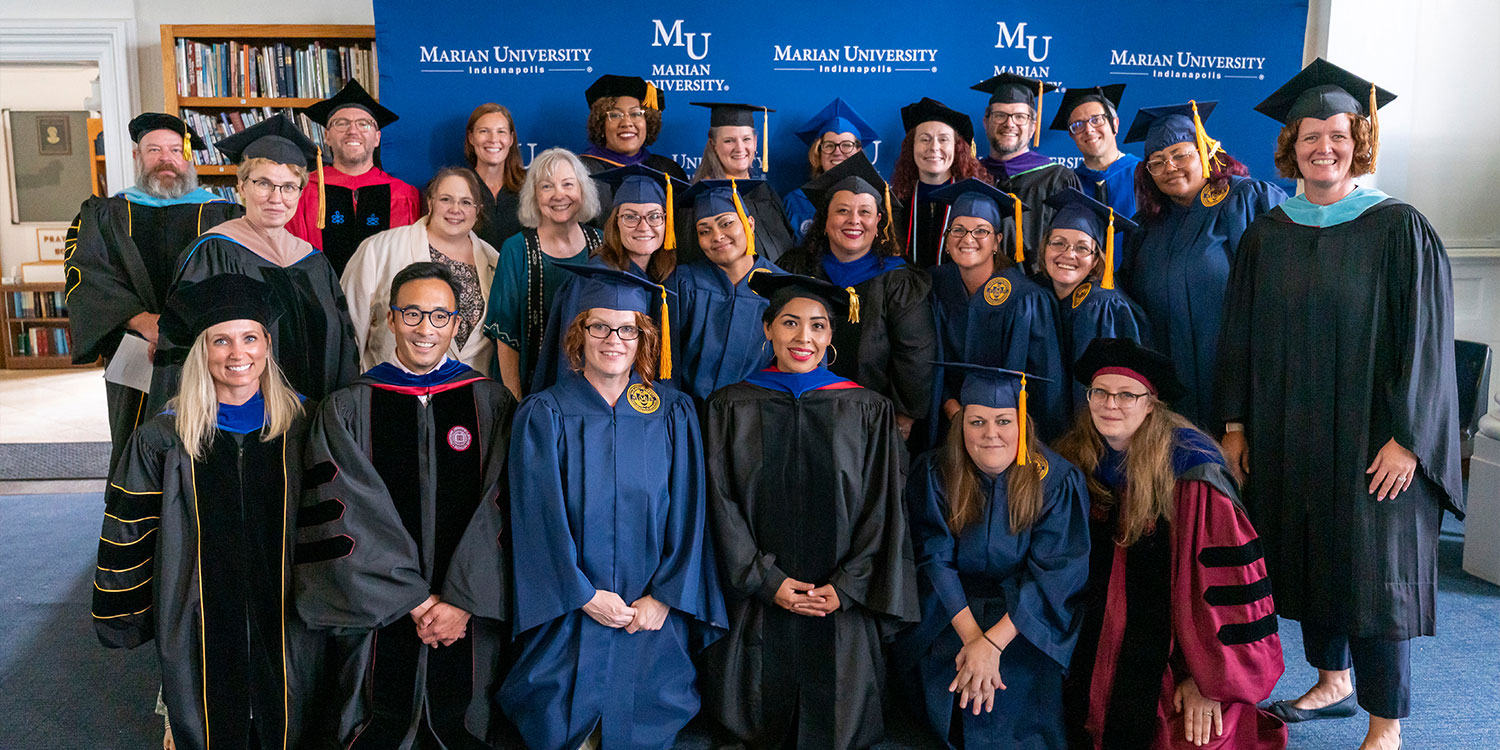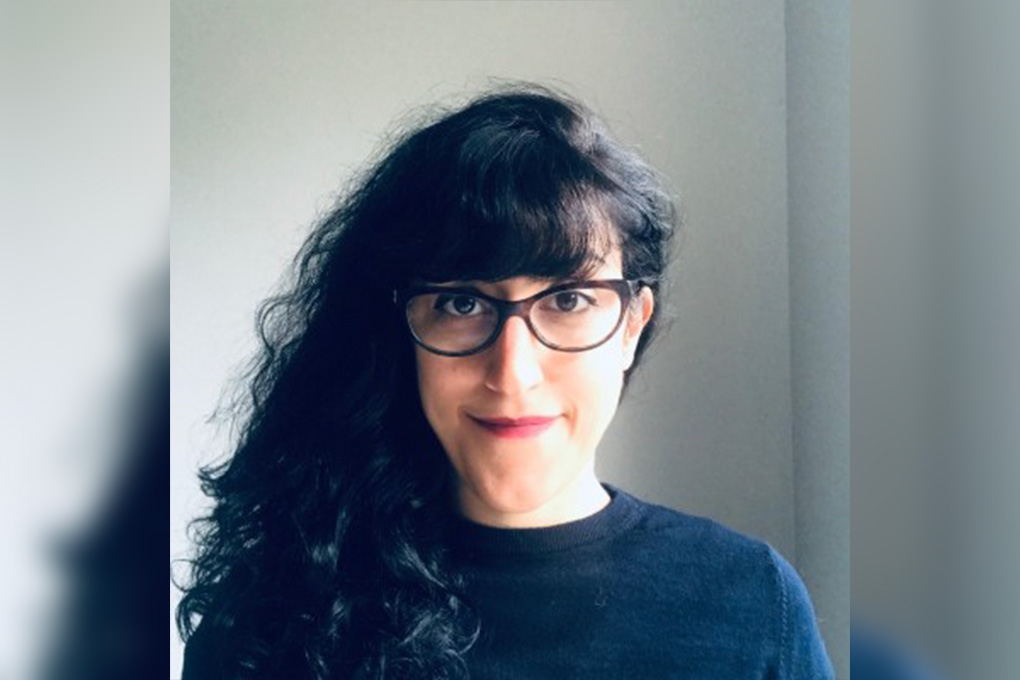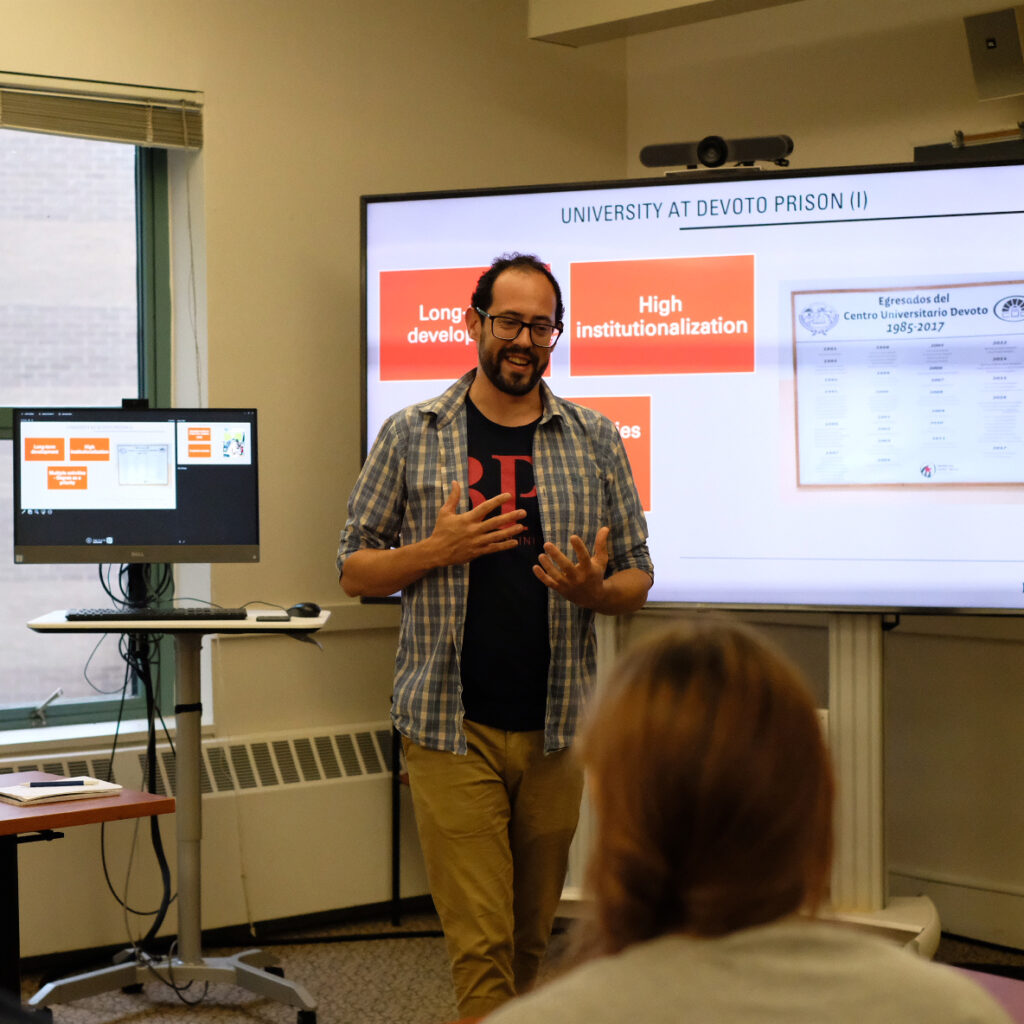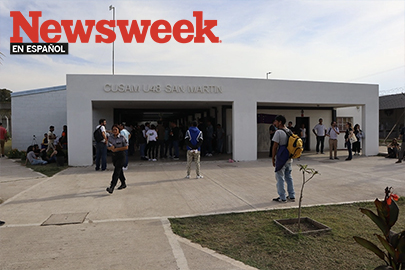Since 2009, BPI has collaborated with other colleges and universities to challenge expectations of higher education while redefining the boundaries of success for people in and returning home from prison. In an era when higher education is facing its own existential crises, college-in-prison can be an example of what American higher education should be, everywhere: accessible, inclusive and ambitious, forward-looking, cultivating the leadership and perspectives of systemically excluded students and engaging them in curricula that reflect the full richness of human thought and learning.
BPI supports emerging and existing programs and practitioners through one-on-one support and technical assistance, an annual intensive two-week residency on Bard College’s campus, and partnership in the Consortium for the Liberal Arts in Prison, a unique network of college-in-prison programs.
Consortium for the Liberal Arts In Prison
For 15 years, through the Consortium for the Liberal Arts in Prison, BPI collaborated with other colleges and universities as they launched fully autonomous college-in-prison programs of their own across the country. Through this unique network, BPI has pursued unlikely partners, new philanthropic supporters, and critical public-sector allies to create programs that last and flourish over time.
The Consortium offers strategic support, technical assistance, and critical guidance to colleges and universities as they develop and sustain their own ambitious college programs.
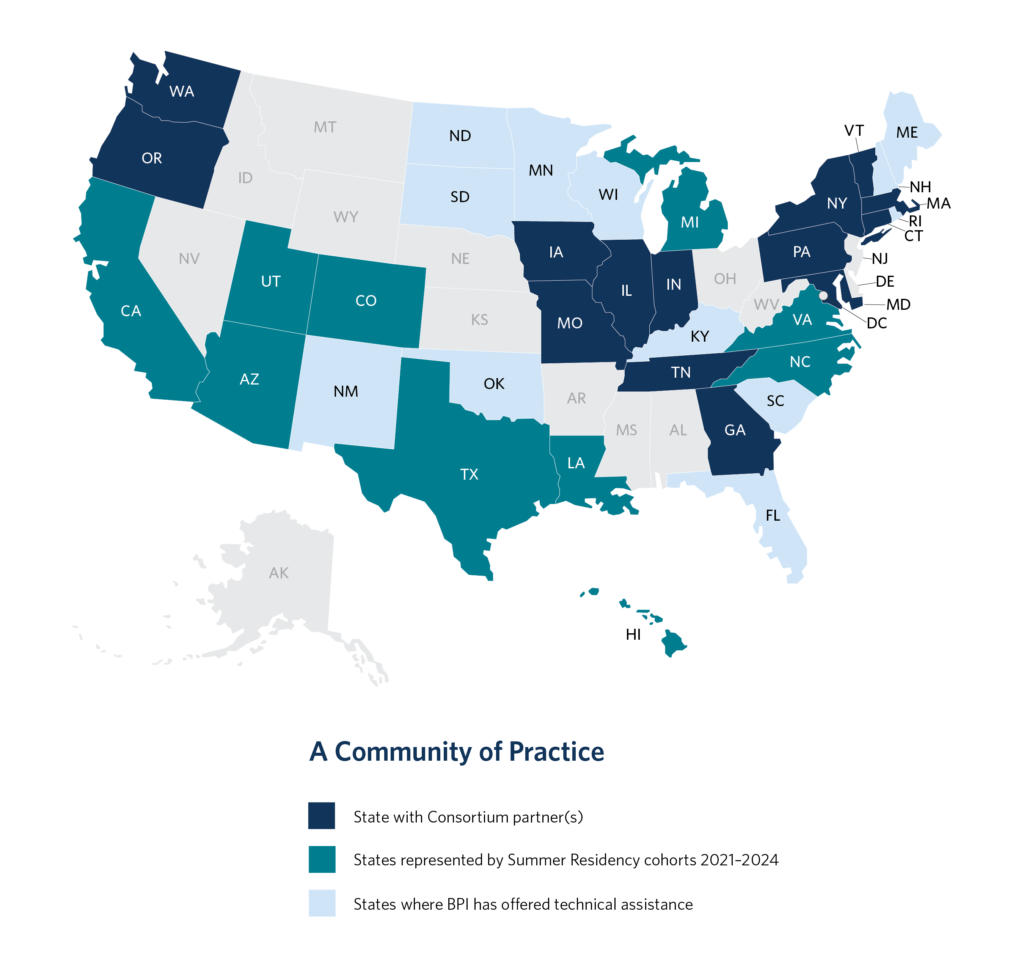
Partners
The programs that make up the Consortium for the Liberal Arts in Prison represent 18 colleges and universities, including Bard, and stretch across 13 states. Partners in the Consortium develop high-quality college-in-prison programs that have the same rigor and high standards expected of main campuses. Together, these leading institutions set the bar for excellence and have become the example for the field of what building programs with integrity and serious commitment looks like, all the while supporting students who are redefining the boundaries of success for people in and returning home from prison.
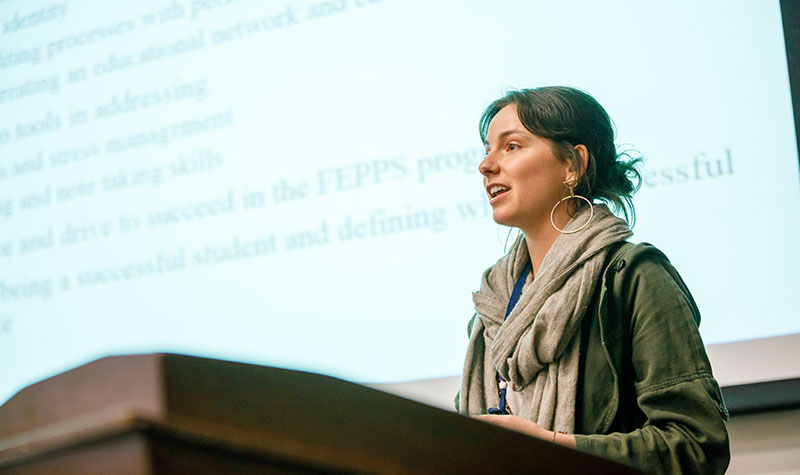
Summer Residency
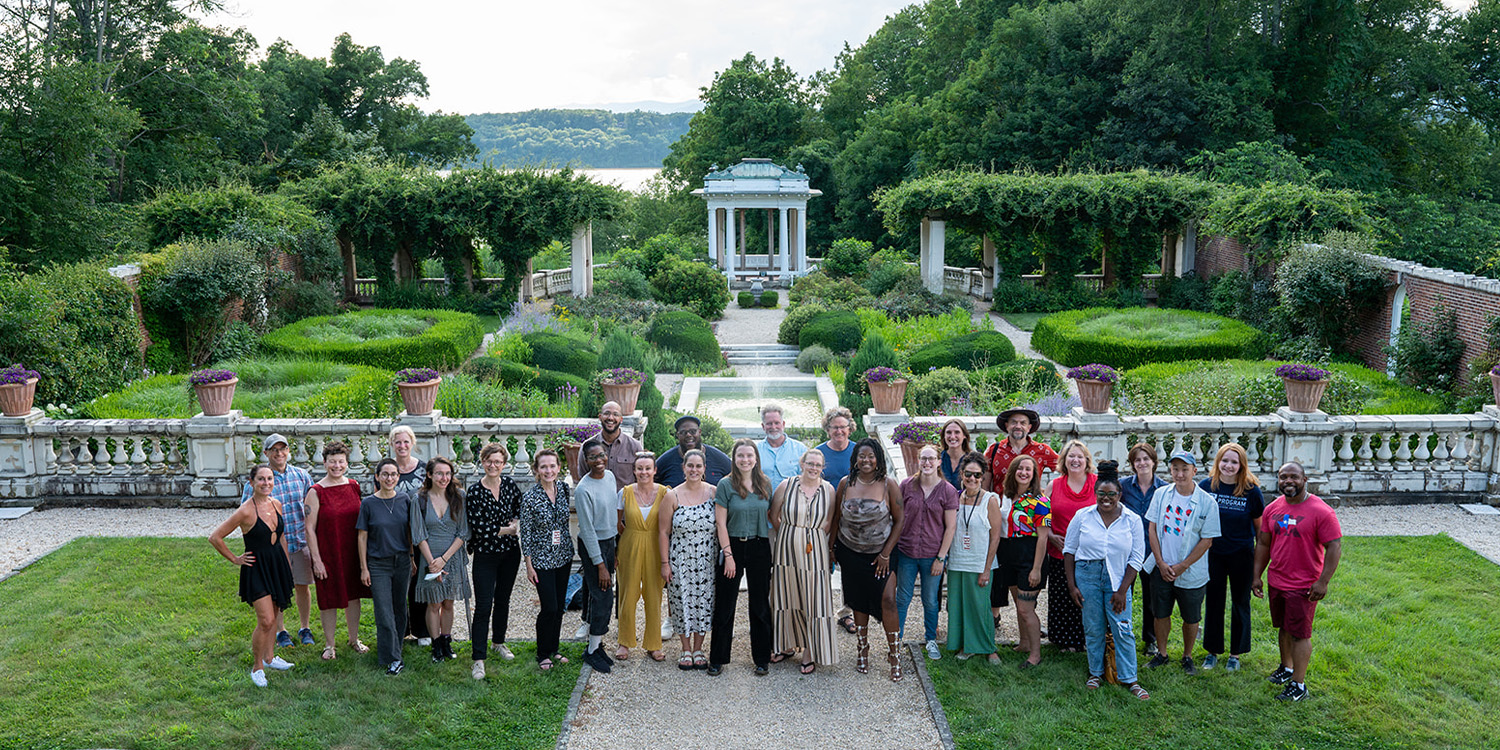
BPI summer residency cohort posing at the Annandale campus.
The BPI Summer Residency stands as a unique site of technical assistance and professional development: built on over two decades of direct practitioner experience, led by BPI subject matter experts from across the BPI staff and alumni community.
This hands-on, experiential training in BPI’s approach to college-in-prison also includes more technical conversations about the mechanics and strategies of building robust, ambitious, and successful college-in-prison and reentry programs in different locations and institutional contexts.
The 2025 Summer Residency will run July 13-26, 2025.
“The BPI Summer Residency helped me move my project to the next level. My thinking has shifted from the local to the global impacts of this work.”
— Adelle Sefton-Rowston
Darwin University, Australia, 2023 Resident
Program Building
Drawing on 25 years of experience, BPI’s assistance has helped other colleges and universities stay true to their own identities, realize students’ full potential, and more deeply fulfill their institutional missions. The Consortium has offered strategic support, technical assistance, and critical guidance to colleges and universities as they develop and sustain ambitious college programs. As partnerships evolve, BPI has assisted with relations with corrections officials, provided initial seed funding, or helped design pilot models.
The country’s leading colleges and universities can—and, now increasingly do—find outstanding students in unconventional settings, including inside correctional facilities. They and their social networks, both public and private, have a critical role to play in transforming the meaning and consequences of prison and higher education in an age of mass incarceration. Yet the Consortium is built on the premise that this promise can only be fulfilled by an approach that puts academics first and treats the prison as only one site among many where we can and must push the frontiers of inclusive excellence.
Technical Assistance
Leveraging 25 years of experience, BPI offers consultations for other educators, practitioners, and stakeholders. Our distinct approach is responsive to a wide and diverse variety of needs coming from institutions of higher education across the higher ed spectrum, at every phase of programmatic development and evolution from very big picture approaches to the work to highly specialized minutia of nuts and bolts.
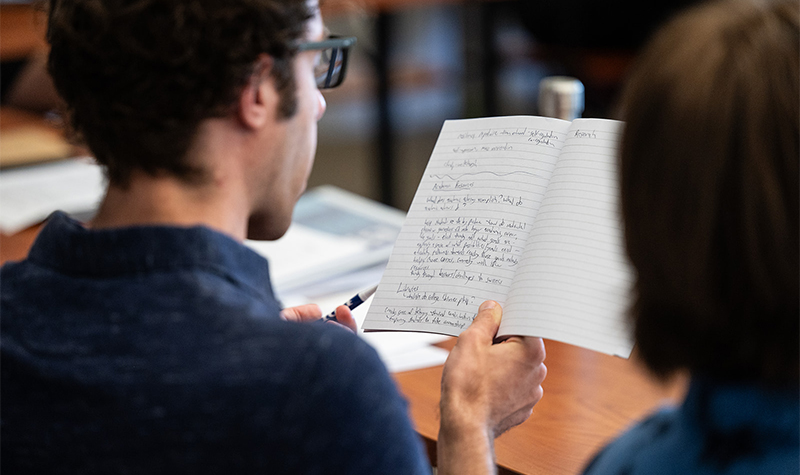
“As the field continues to grow, a strong community of practice is more essential than ever.”
——Jessica Neptune ’02, Director of National Engagement
Conversations with the Field
BPI has designed lecture series and webinars that foster connectivity and conversation for a community of practitioners in different higher education contexts in prisons and carceral spaces across the country.
Global Connections
In 2022, BPI expanded its programmatic support for the first time internationally, launching a Global Research Fellowship and Virtual Lecture Series, partnering with Incarceration Nations Network, regranting funding to 13 grants going out to new, existing, and prospective programs outside of the United States, creating a global community of practice, and funding a convening of educators who work in prisons from across the globe in Argentina in April 2023. The BPI Global Research Fellowship was created to support this community-building work and to increase knowledge about the international landscape of education in prison.
Learn More
Contact Us
If you are an emerging or existing practitioner or college-in-prison program and would like to receive more information on the Summer Residency, the Consortium, technical assistance, or BPI’s national and international work, please use the form below.
